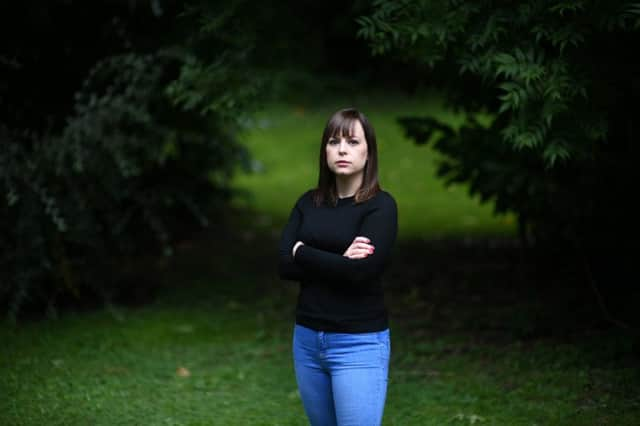Tackle suicide stigma among Scots, say campaigners


Relatives of those who have taken their own lives and charities have spoken out after shock figures published last week found Scotland has the highest suicide rate in the UK, with 16.1 deaths per 100,000 people.
Three-quarters of such deaths across the country last year were men, official statistics found.
Advertisement
Hide AdAdvertisement
Hide AdHolyrood ministers published a new prevention plan in 2018 with the aim of reducing suicides by 20 per cent over the next three years.
Julie Cameron, from Mental Health Foundation Scotland, said: “We need to address how men in our society are expected to cope when they feel under pressure.
“But it also means looking after our most vulnerable with a welfare system that treats people with dignity and respect.
“We all have a responsibility to shift the culture and talk to the men in our lives. If you are worried about someone in your life who is going through a hard time, talking is the first step.”
Kirsten Walker, a communications officer from Glasgow, has written to the Scottish Government to call for an improved information campaign to tackle misconceptions surrounding the issue.
Her father, Brian Walker, took his own life in June 2018 at the age of 68. She said there were no warning signs or obvious triggers that he was unwell.
She added: “As a family, we had thought that he was suffering from mild anxiety which started after a fairly minor health condition which had since corrected itself.
“He received private counselling for his anxiety and had stopped seeing the counsellor three weeks before his death, as he apparently felt he had made enough progress.”
Advertisement
Hide AdAdvertisement
Hide AdShe continued: “People are obsessed with wanting answers because they want to re-assure themselves that it couldn’t happen them, suicide is something that happens to someone else. But it could potentially affect anyone.
“I am not obsessed with the ‘why’. I may not know the triggers, what mental health condition he had, or why he couldn’t speak to us, but I know he must have been very ill.
“My dad was totally selfless. He was the kind of dad who would pick me up at 3am after a night out when I couldn’t get a taxi.
“He was kind, fun, and had a great sense of humour. He was an amazing dad and would have done anything for us - and us for him.”
Public health minister Joe FitzPatrick said: “Over the past decade, Scotland has made real progress in reducing deaths by suicide but we have far more to do. We want a Scotland where suicide is preventable, and where anyone contemplating suicide or who has lost a loved one gets the support they need.
“We are addressing the stigma associated with suicide and encouraging people to talk.
“We are reaching many more people with new online resources and support through health boards, council and teaching staff, with the Scottish Professional Football League and Scottish Football Association being among the first organisations to roll out this these resources to players and staff across all 42 clubs.
“This recognises the need to work together with people with lived experience of suicidal thoughts or bereavement and across sectors and organisations to support people in distress, strengthen communities, and reduce suicide in Scotland by 20 per cent by 2022.”
Advertisement
Hide AdAdvertisement
Hide AdIf you are struggling you can contact Samaritans 24 hours a day by phone, free of charge, on 116123, via email at [email protected] or can visit www.samaritans.org to find details of their local branch.